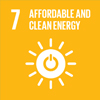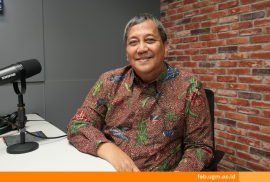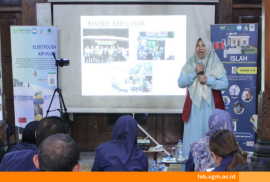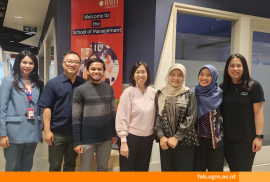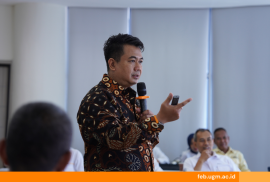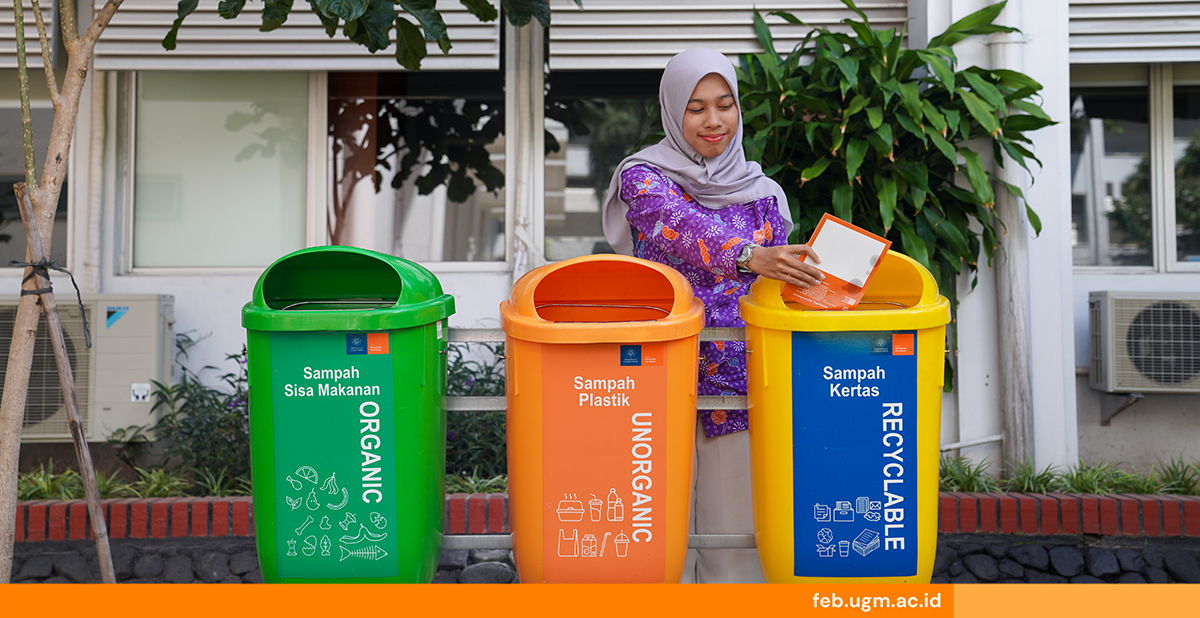
The Faculty of Economics and Business (FEB) at Universitas Gadjah Mada (UGM) continues to affirm its commitment to waste management and sustainable energy. A range of initiatives has been implemented to foster a greener and more environmentally friendly campus, aligning with sustainability principles.
FEB UGM Administrative Office Head, Nur Bakti Susilo, S.E., Ak., CA., ASEAN CPA., stated that the faculty is actively working to reduce waste generation from various campus activities through structured waste management programs. These efforts encourage the application of the 5R principles—Reduce, Reuse, Recycle, Replace, and Replant—among students, faculty, and professional staff to minimize environmental impact.
“To cut down on waste, particularly single-use plastic bottles, we encourage students, faculty, and staff to use tumblers and reusable shopping bags,” he explained.
In addition to promoting eco-friendly alternatives, FEB UGM has transitioned all business processes to an IT-based system. This digitalization initiative aims to minimize paper usage and create a more sustainable operational environment.
FEB UGM also emphasizes waste sorting and processing to generate added value from waste. To support this effort, the faculty provides designated bins for organic, inorganic, and recyclable waste.
“For organic waste, we convert it into fertilizer through biopores within the FEB UGM campus. Meanwhile, leftover food waste is repurposed as feed for fish and poultry,” he added. Additionally, FEB UGM has implemented a greening program by planting trees and vegetation around campus.
Recyclable waste is collected and sold to waste haulers, with proceeds allocated to support social initiatives at FEB UGM.
“We weigh and record waste daily by type to monitor trends in waste generation,” he noted.
Beyond waste management, FEB UGM has taken steps toward sustainability by adopting renewable energy solutions, including the installation of solar panels. This initiative aims to lower electricity consumption and enhance long-term energy efficiency while reducing carbon emissions and contributing to climate change mitigation.
Looking ahead, FEB UGM plans to expand its sustainability initiatives by fostering active participation from the entire academic community. Awareness campaigns on waste management and renewable energy will continue through various campus programs.
During the National Waste Awareness Day declaration hosted by UGM on Thursday (February 20, 2025) at the Agro Technology Innovation Center (PIAT), FEB UGM played an active role in educating the public on waste management, emphasizing the 5R movement and the adoption of solar energy as a sustainable solution.
“These initiatives align with FEB UGM’s mission to cultivate a sustainable environment, forming a collective movement involving students, faculty, and staff,” he concluded.
Report by: Kurnia Ekaptiningrum
Sustainable Development Goals



